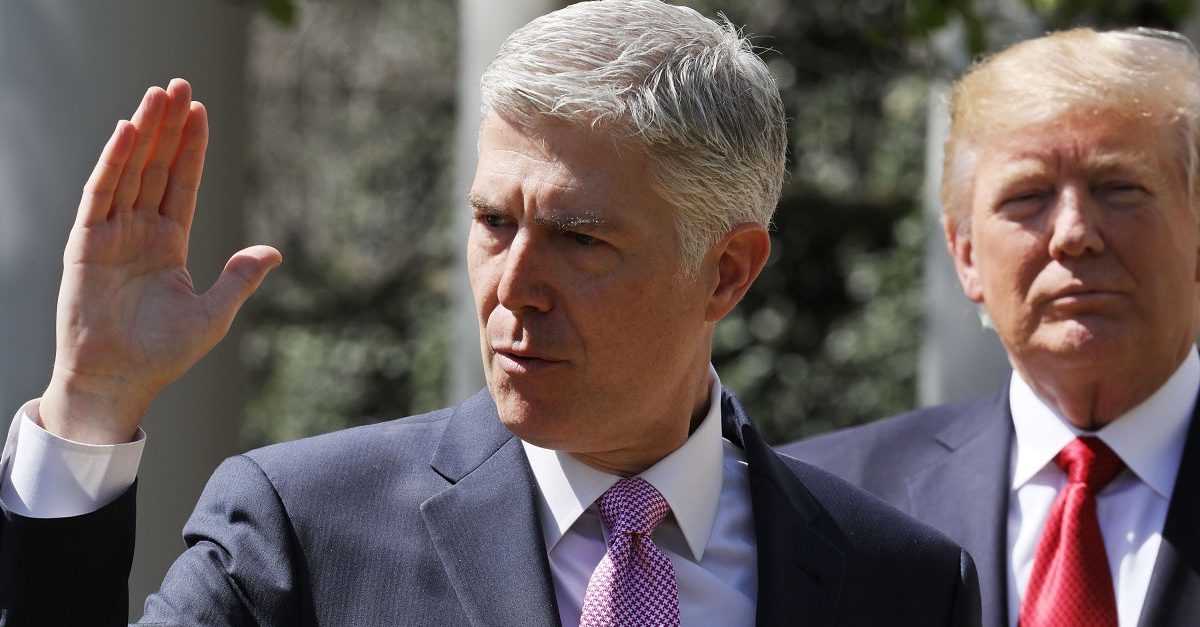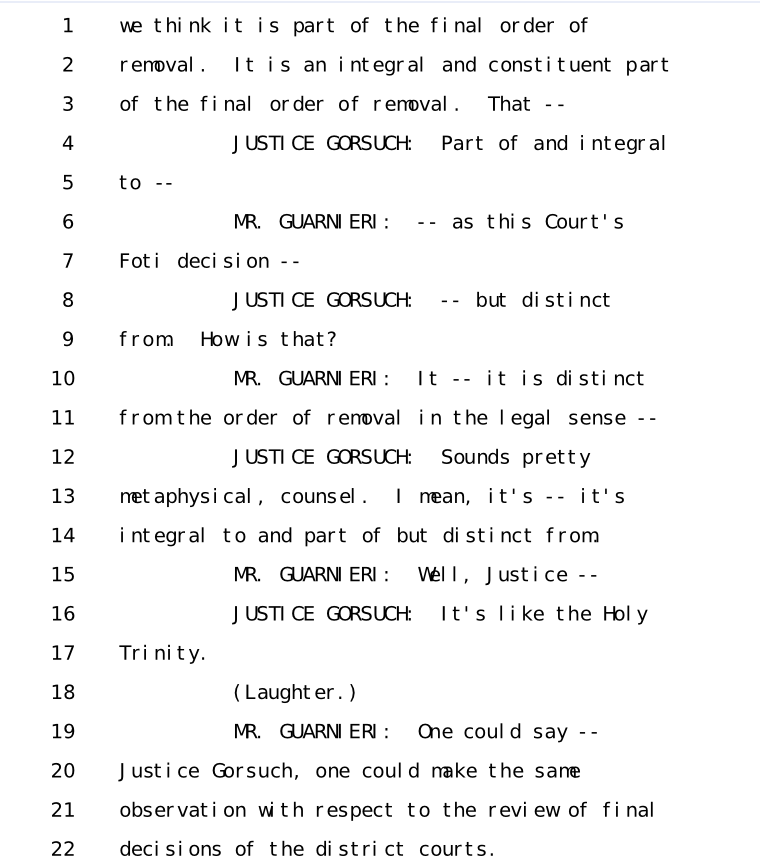
The U.S. Supreme Court on Monday heard oral arguments in a case about whether federal courts can review an immigration judge’s final order of deportation for a permanent U.S. resident who claimed that he would be tortured upon return to his home country. The justices appeared unconvinced by the government’s position that the decision was not open to judicial review – with Justice Neil Gorsuch referring to the Justice Department’s argument as “metaphysical” and “like the Holy Trinity.”
The case centered on Lebanese citizen Nidal Khalid Nasrallah–a permanent U.S. resident since 2007–who was sentenced to one year and 364 days in prison in 2012 after pleading guilty to two counts of receiving stolen property (packaged cigarettes) for the purpose of resale. When the government sought to deport Nasrallah after his release, an immigration judge approved the order for removal, citing that Nasrallah was guilty of a “crime involving moral turpitude.”
Nasrallah then applied for and was granted a deferral of his removal under the United Nations Convention Against Torture and Other Forms of Cruel, Inhuman, or Degrading Treatment or Punishment (CAT), as codified in the Immigration and Nationality Act. This happened after he claimed he would be subject to torture upon his return.
The Board of Immigration Appeals (BIA) reversed Nasrallah’s deferral and the Eleventh Circuit Court of Appeals said it was prohibited from reviewing the board’s decision.
Given the confluence of seemingly conflicting statutes and legal provisions at play, the justices seemed inclined to favor allowing judicial review of the board’s decision.
Defending the BIA’s order as non-reviewable, Assistant to the U.S. Solicitor General Matthew Guarnieri argued that CAT order was both “an integral and constituent part of” the BIA’s final order of removal but also existed “distinct from the order of removal in the legal sense.”

“Sounds pretty metaphysical, counsel. I mean, it’s — it’s integral to and part of but distinct from [the order],” Gorsuch said. “It’s like the Holy Trinity.” The transcript noted that a laugh was had.
Justice Brett Kavanaugh also appeared skeptical of the argument, asking Guarnieri why Congress would have “wanted to preclude judicial review of those highly important factual components” of Nasrallah’s CAT claim.
The court’s liberal bloc of justices also appeared to favor Nasrallah’s appeal, while Chief Justice John Roberts and Justice Clarence Thomas did not ask a question of either side.
Read the full oral argument transcript below:
SCOTUS Oral Argument Transcript by Law&Crime on Scribd
[image via Chip Somodevilla/Getty Images]